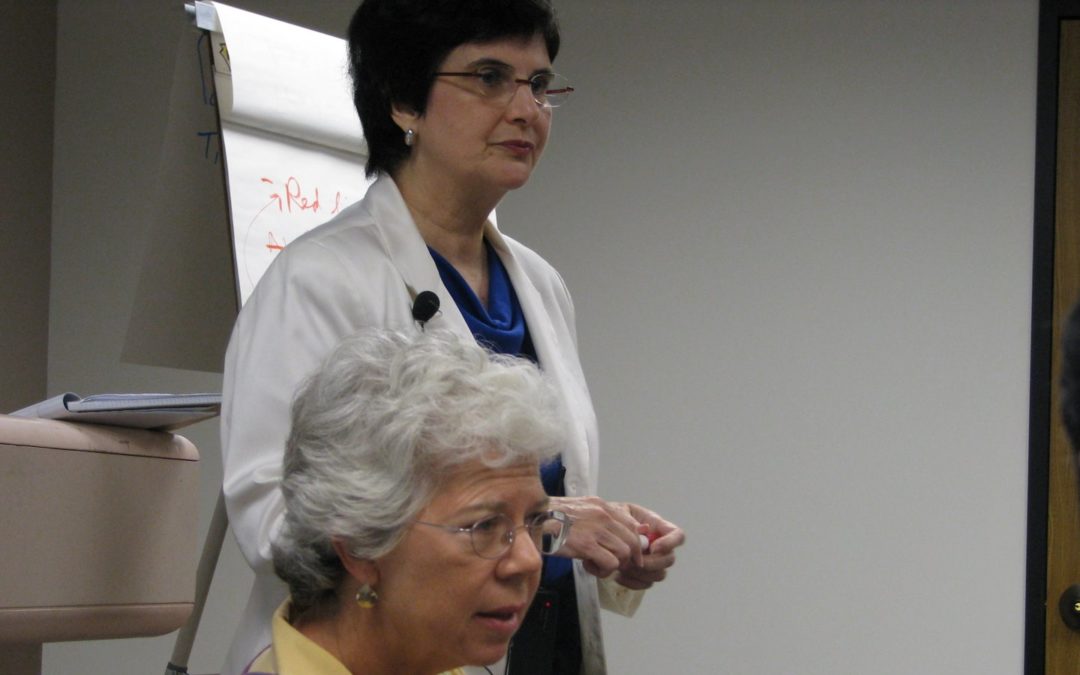Decades ago, I read the negotiation classic Getting to Yes as soon as it hit the market. I felt relieved to know that I didn’t have to “play hardball” to succeed. On the contrary, the negotiation practices that had been scientifically proven to work best for me were compatible with my moral and ethical standards.
Some years later, I heard that professors Roger Fisher and William Ury, authors of Getting to Yes, gave summer continuing ed courses at Harvard University. Of course, I signed up for Dr. Fisher’s basic course the very next summer.
We spent eight hour days for a whole week, and prepared for the next day’s exercises by night. We negotiated with partners up to four times a day. We practiced dealing with neighbors, bosses, coworkers, all kinds of things you don’t think of as negotiation. By the end of that week, I didn’t just know the skills. I had assimilated them.
A couple of years later, I returned to summer school for Dr. Ury’s Advanced course. Wow, was it challenging. In addition to paired exercises, we had a number of multiple-party exercises, which complicated the work exponentially. The fact scenarios were more difficult as well.
These courses changed my life. Because I have a talent for logical argument. But after those courses, if I wanted to persuade someone who disagreed with me, instead of arguing logic, I talked about interests. I tried to address their interests in ways that also met my interests. My persuasion successes sky rocketed.
I began resolving differences between my coworkers and myself. I settled differences between coworkers even when I wasn’t directly involved. Often, I found myself using the skills to dissuade customers from acting on their potentially disastrous ideas. I used the skills in professional organizations, with family, among friends, everywhere. These real-life successes built on my formal training.
I not only built the skills, I also learned how to teach them—give the trainees plenty of hands-on practice. I’d always wanted to teach. But not to a captive audience of kids who didn’t want to be there. I wanted to teach adults something useful that they wanted to learn.
And though I could have sought a license to teach the Harvard materials, I didn’t want to do that either. I wanted to add my own perspective and to get into ancillary topics. So I developed all my own course materials, adding things I’d learned by experience and from sources other than the Harvard Negotiation Project. I wrote my own detailed and realistic hypothetical scenarios for trainee exercises. I started going into organizations and training people. I also coached individuals.
The entire experience sparked my interest in how communication disconnects masquerade as (or turn into) conflicts. Why do certain communications grab some folks’ attention and make others’ eyes glaze over with boredom? Why does one person’s sense of polite speech seem impolite to another? I augmented my course materials with classes on how differences in temperament, culture, learning style and gender affect communication style, how to recognize the disconnects, and how to correct them.
Eventually, I decided to quit my “day job” to teach and consult full-time. I also did some adjunct teaching and guest lecturing at universities. From 2002 – 2014, I taught my own curricula at Rice University’s Glasscock School of Continuing Studies. Next, I began writing about the skills. I’ve published two books and am working on a third.
This work is so fulfilling to me that I can’t imagine ever completely retiring. And trainee, client and reader feedback is a big part of what makes my job so rewarding. Every success story makes me want to teach even more. Every time someone tells me they learned something new and useful, I want to write even more.
So thanks, everyone, for inspiring me, and please keep your comments and questions coming.


Hi, Margaret! I think I’m already subscribing but just in case there has been a glitch…
I also forwarded this to my son whose going through a divorce and daughter, an attorney who does a lot of mediation work.
Hope to see you soon!
Thanks so much for sharing my blog post with your family.
You are on my subscriber list. I just sent you a test email to be sure I still have your current email address. If you don’t receive the test, or if you haven’t been receiving blog announcements (should have received about 9 during May and June), please contact me. And thanks again.